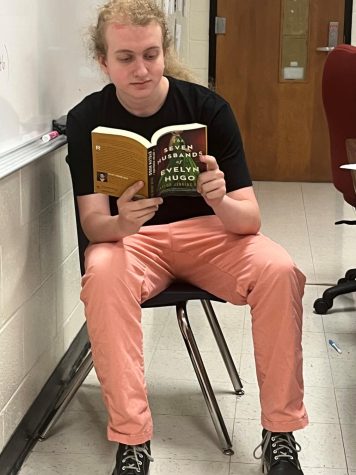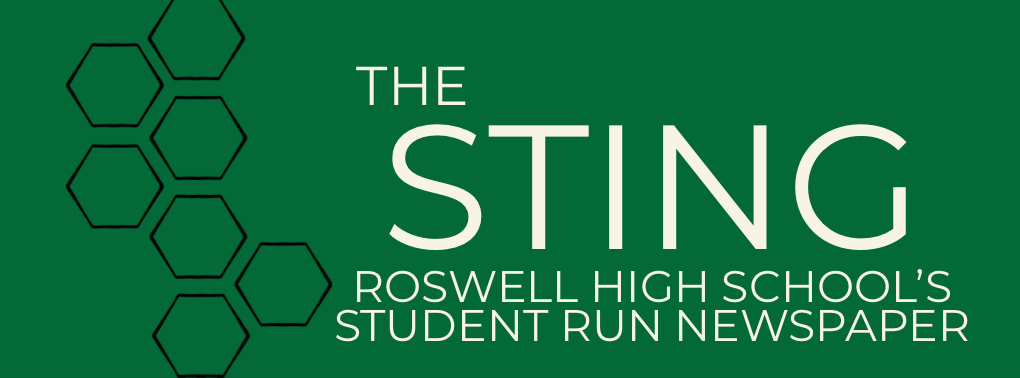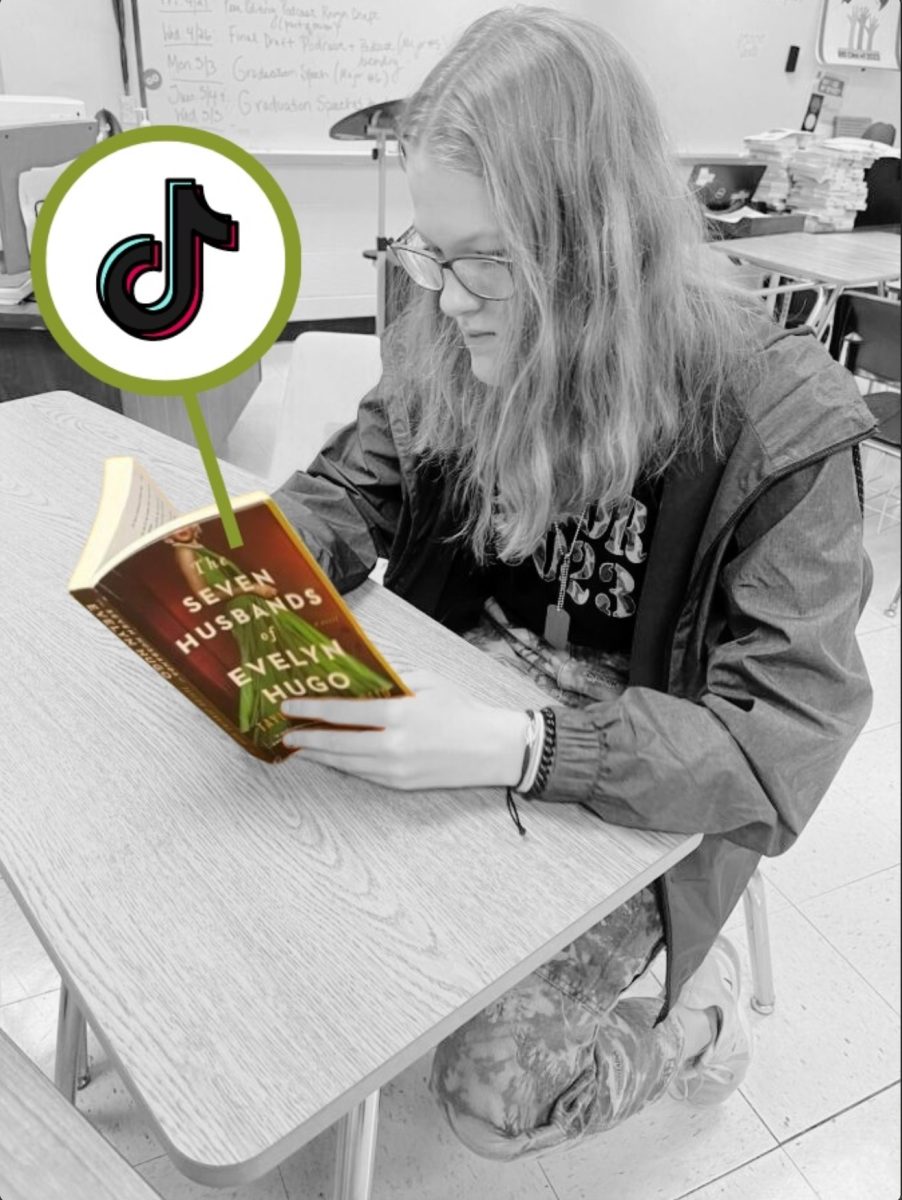BookTok’s Reach on Teens: For Better or Worse?
Makenna Rowlett reads “The Seven Husbands of Evelyn Hugo“ at her desk. As of now, it has spent 109 weeks on the Paperback Trade Fiction portion of the New York Times Best Sellers list and 92 weeks on the Combined Print & E-Book Fiction section. Its longevity can partly be attributed to the consistent discussion about it on BookTok. The biggest hashtag pertaining to it currently has 374 million views and counting. (Credit: Jennifer Lee)
May 2, 2023
Upon entering any Barnes & Noble location, you will immediately see the BookTok tables nearby. If you decide to check the selections out, you will likely see Hanya Yanagihara’s “A Little Life” sitting a few books down from Sarah J. Maas’s “A Court of Thorns and Roses.”
Erupting discussion on this sub-section of social media is funneling into booming sales for the publishing industry and retailers as these novels are reviewed by TikTok users and then rapidly reposted by viewers.
But how has it affected the expansive demographic of teenagers?
One will find many opposing opinions on the topic, most notably a recent article in “GQ Magazine” that cites concerns that some publishers are capitalizing on the sales of BookTok reviews by engaging influencers in what they are reviewing and sending them certain books to review in hopes of making them popular and thus contributing to book sales among other issues. While on the other side, some believe it to be overwhelmingly positive for the enthusiasm of reading generated there.
However, I don’t believe the issue is as black-and-white as the cultural critique that is surrounding this debate.
The most obvious effect is that it has regenerated an interest in reading that many teens have abandoned. It is easy to see why considering that the app’s time limit for videos requires one to promote books in a memorable way.
Its impact on the increase of reading can be reflected by , reporting that the annual sales volume for printed books reached 825.7 million units in 2021. This ended up falling by 6.5% in 2022 due to Covid lockdowns continuing to be lifted yet they were still 11.8% higher than that of 2019.
The same handful of books, primarily written by white authors, tend to get the most amount of spotlight. Despite this, it is quite easy to find reads that fit into one’s niche – whether that be more centered around voices of color or something more peculiar than the romance books that are observably dominant – thanks to the algorithm. BookTok may be known for its hand in Colleen Hoover’s catalog outselling the Bible in 2022, but it has helped me find many hidden gems when I make the effort of looking.
As much as I dislike certain authors and series that have taken the app by storm, I cannot deny its contributions in getting teenagers back into the habit of reading. In 2021, Forbes reported that members of Gen-Z have a surprising screen-time of 9 hours a day, so it is incredibly refreshing to see that some of that time spent can encourage teenagers to pick up a book.
All of this seems perfect, doesn’t it?
A plethora of problems have arisen from BookTok’s reach, but the one that stood out particularly to me is its connection to TikTok’s culture of over-consumption.
Over-consumption, in the context of TikTok, is a cycle of individuals conforming to one rapidly moving microtrend to the next once an item is no longer popular. Discussions surrounding it usually pertain to clothing and makeup, but it is also extremely prevalent in the book community with the driving force BookTok has become in publishing.
It is very easy to be influenced by people into buying the trendiest books at the moment, especially because the lifestyle of being a reader is often idealized. There is also a very strong preference towards buying books rather than utilizing the local library. This wouldn’t be as big of an issue if people weren’t constantly buying more than they read on the platform.
Accumulating more than you read is a swift process, so it isn’t surprising that many influencers share their expansive pile of unread books with their followers. However, being exposed to behaviors like this cannot have a good influence on anyone especially not people who may be earning money for the first time.
Growing up as an avid reader in a time where the internet exploded, I feel like I am well-versed in book-related communities on social media to say that its pros and cons are nothing new, but the unprecedented reach of TikTok in recent years has just stressed them. The treatment of books as nothing more than a commodity has been a topic of discussion on BookTube for a while now after all.
The app’s involvement in getting teenagers interested in reading again and its negative effects on them are not mutually exclusive. No platform is free of criticism and BookTok is among those, but there is plenty of space for nuanced conversations about it.



